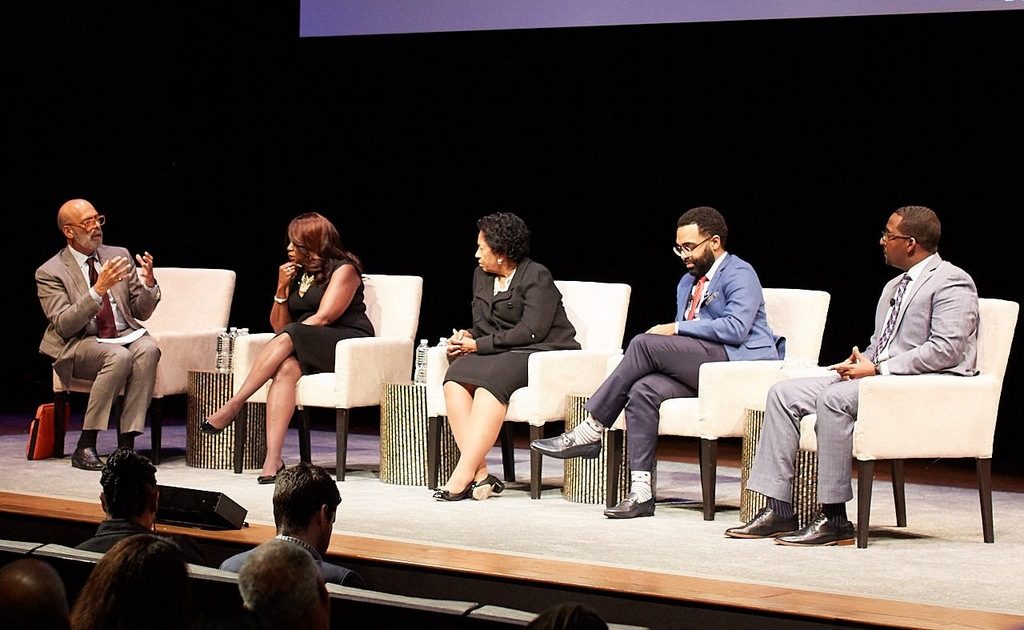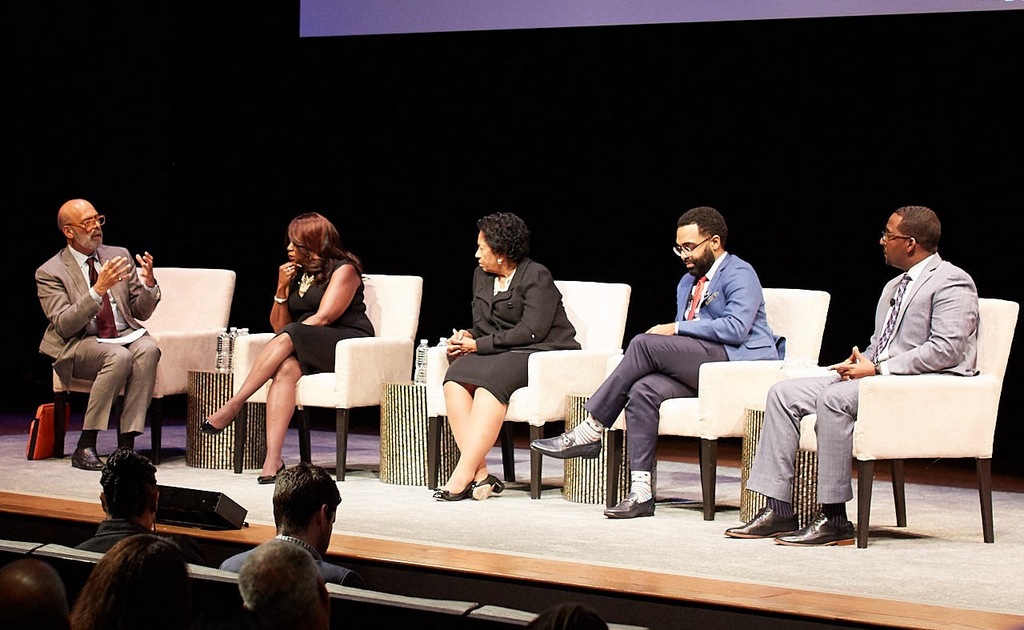[ad_1]
By Delonte Harrod, Special to the AFRO
African-American leaders banded together to rewrite the narrative of diversity in the tech industry. On Oct. 2, at the National Museum of African-American History and Culture, Robert F. Smith, CEO, founder, and president of Vista Equity Partners (which focuses on enterprise software), along with Linda Wilson, executive director at Fund 2 Foundation, announced and unveiled a new digital platform for internship equity, InternX.org.
The platform serves as a digital pipeline to help students of color from underserved communities gain access to tech internships. Smith and Wilson contend that if students of color can get a foot in the door, they can obtain more skills, and gain access to mentorship and better paying jobs in tech and other industries.

“This convening is not a diversity and inclusion conference per se,” said Smith. “It’s a business conference because if America is going to remain competitive in the global economy age of the digital disruption, business and academia must collaborate on engaging the best and brightest talent from underrepresented communities of color. This is why we built internX.org – to ensure a win-win for everyone.”
The event was held in the museum’s Oprah Winfrey Theater. Academics, tech entrepreneurs, and representatives from a variety of corporations sat through the two-hour presentation, that entailed a live one-on-one conversation between the CEO of AT&T Communications, John Donovan, and Smith; as well as two-panel discussions. The first panel focused on corporate recruitment and retention initiatives and strategies. The second panel was centered on academic efforts.
The corporate panel was led by Van Jones, CNN political commentator and the other by Dr. Michael Lomax, United Negro College Fund president. Panelists, to name a few, included: Youlanda Copeland Morgan, vice provost of enrollment management at UCLA; Dr. Ruth Simmons, president of Prairie View A&M University; Lori Malcolm, chief culture officer at United Way World Wide and Dr. Bernard Harris, first African American to walk in space and president and CEO of the Math and Science Initiative.
One of the main goals of F2F, Wilson said in her opening remarks, is to use internX.org to connect and match 10,000 students to internships by 2020. “I will venture to say that we might even surpass that because people are really blowing our minds with offers, so HALLELUJAH,” Wilson exclaimed at the podium while raising her hand in the air.
Students will have access to the website to post their resumes, undergo a skills and aptitude assessment, and view internship openings for which they may qualify. Corporations can view potential interns’ resumes and begin the interview and selection process.
“[This] portal will bring precision, inclusion, and proficiency to the STEM internship matching process,” said Wilson. “It will bridge the talent gap many corporations are experiencing by broadening and deepening the pool of brilliant and capable young people ready to jumpstart their professional journey.”
Jason Young, founder and CEO of Mindblown Labs and who has worked with developing minority youth jobs in the tech industry, said the digital pipeline could potentially be [one] of the missing links “to getting minority students to the opportunities they need.”
Young said if the platform is successful, “I think that would be amazing. It is extremely important to close the [wealth] gap. Tech is the present and the future. And if you think about the wealth gap that exists between African-Americans, in particular, and White Americans – tech is a way to close that gap. Why? Because when you look at the tech [industry] and you combine creativity with business execution, you have the ability to reallocate huge sums of money in very short periods of time.”
[ad_2]
Source link

